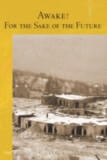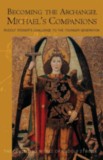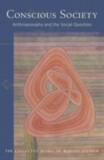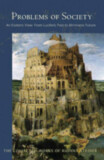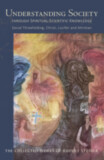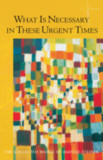Freedom of Thought and Societal Forces
Implementing the Demands of Modern Society (CW 333)
- Publisher
SteinerBooks - Published
20th November 2008 - ISBN 9780880105972
- Language English
- Pages 248 pp.
6 lectures in Ulm, Berlin, and Stuttgart, May 26–December 30, 1919 (CW 333)
Freedom of Thought and Societal Forces offers a broad overview of Steiner’s fresh thinking on what he called the “threefold social order.” He acknowledged that the demand for social change derives above all from the working class, whom industrialization had forced into a kind of indentured life dominated by economics. From Steiner’s perspective, the underlying issue is not just economic, however, but also spiritual or cultural—culture and the cultured classes have become estranged from real life. Society needed a “free” culture that includes all classes. It also needs to shift labor into the legal sphere of rights, the only place where workers can find real freedom in society. Capital, too, needs to be liberated from egotism and allowed, like goods, to circulate freely. Above all, Steiner understood that social realities cannot be separated from the spiritual realities of human existence.
From this perspective, we lack knowledge of ourselves as spiritual beings, and thinking has become abstract. To remedy this, we must first acknowledge it and then develop modesty and humility. Next we must increase our capacity to love one another and the world. Approaching this reality from another side, we see that what ordinary individual thinking afflicts culture in general, which becomes removed from reality. Culture, like thinking, must become alive and universally human. This is impossible, however, unless we develop what Steiner calls “freedom of thought.” Authentic freedom of thought is always ethical and overcomes egotism. Indeed, a more general exercise of freedom in thought, as Steiner conceives it, provides a way through the twin dangers of materialism and abstraction—that is, through ahrimanic and luciferic worldviews—which together threaten society in both the narrow sense through nationalism and globally through geopolitics.
Freedom of Thought and Societal Forces is the first English translation from German of «Gedankenfreiheit und soziale Kräfte» (GA 333).
C O N T E N T S:
Introduction by Christopher Bamford
1. The Threefold Aspect of the Societal and Class Question
2. Insight into the Supersensible Human Being and the Task of our Time
3. Realizing the Ideals of Libery, Equality, and Fraternity through Social Threefolding
4. Spiritual Science, Freedom of Thought, and Societal Forces
5. The Assets and Liabilities of World Cultures
6. Spirit-Cognition as a Basis for Action
Rudolf Steiner
Rudolf Steiner (b. Rudolf Joseph Lorenz Steiner, 1861–1925) was born in the small village of Kraljevec, Austro-Hungarian Empire (now in Croatia), where he grew up. As a young man, he lived in Weimar and Berlin, where he became a well-published scientific, literary, and philosophical scholar, known especially for his work with Goethe’s scientific writings. At the beginning of the twentieth century, he began to develop his early philosophical principles into an approach to systematic research into psychological and spiritual phenomena. Formally beginning his spiritual teaching career under the auspices of the Theosophical Society, Steiner came to use the term Anthroposophy (and spiritual science) for his philosophy, spiritual research, and findings. The influence of Steiner’s multifaceted genius has led to innovative and holistic approaches in medicine, various therapies, philosophy, religious renewal, Waldorf education, education for special needs, threefold economics, biodynamic agriculture, Goethean science, architecture, and the arts of drama, speech, and eurythmy. In 1924, Rudolf Steiner founded the General Anthroposophical Society, which today has branches throughout the world. He died in Dornach, Switzerland.



